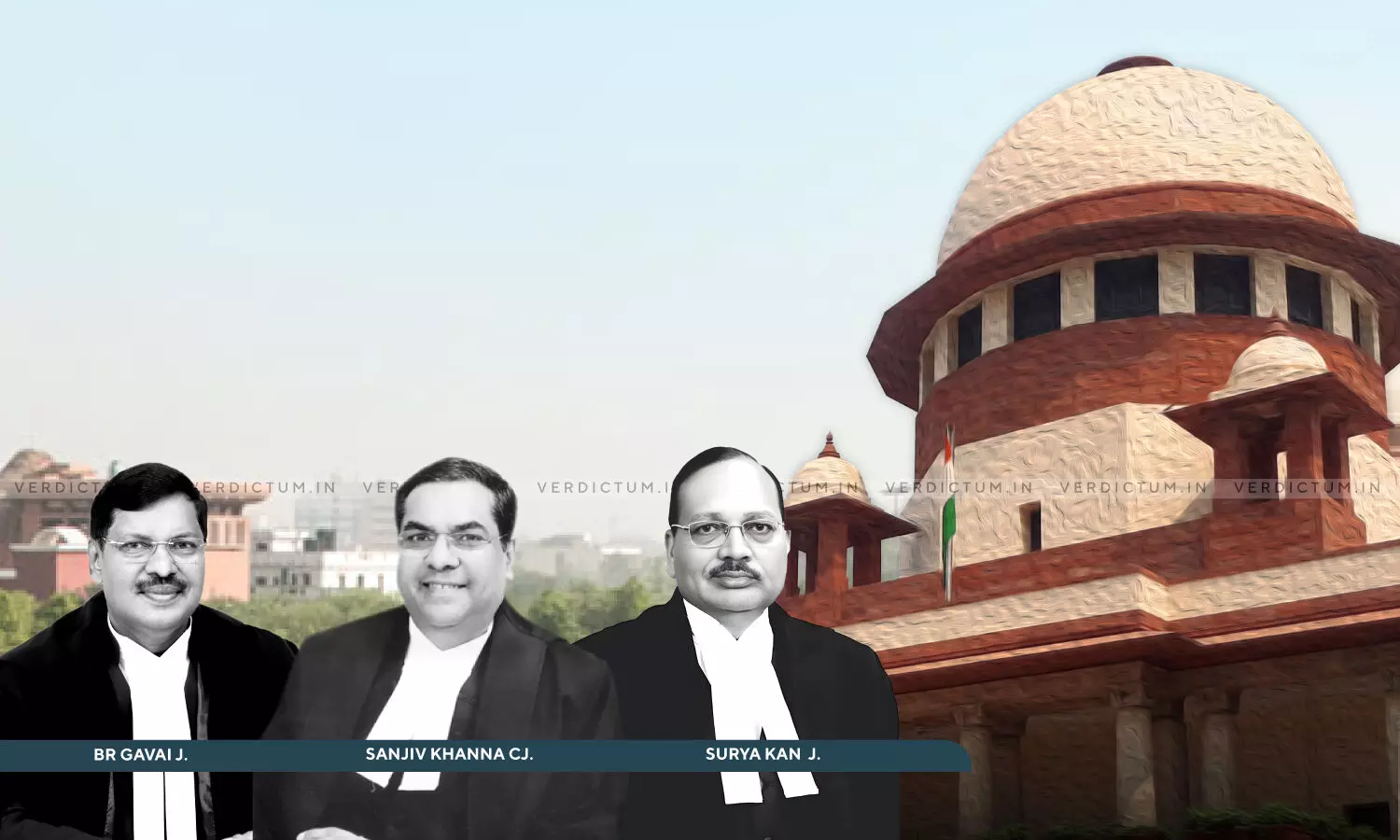
Can Ad-Hoc Judges Be Appointed To Sit In HC Division Benches For Disposal Of Criminal Appeals? Supreme Court Seeks AG's Response
 |
|"We would like the Attorney General to address us, whether ad-hoc judges can be appointed to sit in the division bench, for disposal of criminal appeals, listed before the division bench of High Courts," the Bench noted in today's order.
The Supreme Court is actively exploring modifications to its 2021 guidelines on the appointment of ad-hoc judges under Article 224A of the Constitution.
During the hearing today, the Bench of CJI Sanjiv Khanna, Justice BR Gavai, Justice Surya Kant, and Senior Advocate Arvind Datar, emphasized the acute problem of pendency in High Courts, particularly in criminal appeals.
The Court acknowledged that the current stipulation requiring at least 80% of sanctioned judicial strength in High Courts to consider appointing ad hoc judges is impractical in states with high pendency.
The CJI proposed modifying this threshold to allow for ad hoc judges specifically to address criminal appeals.
The CJI noted the pendency data:
1. Allahabad High Court: 63,000 criminal appeals in division benches.
2. Patna High Court: 21,000 appeals.
3. Punjab & Haryana High Court: 21,000 appeals.
4. Karnataka High Court: 20,000 appeals.
5. Jharkhand High Court: 13,000 appeals.
6. Rajasthan High Court: 8,000 appeals.
Additionally, Senior Advocate Datar highlighted that four High Courts account for 54% of the total arrears across the country.
Targeted Approach for Ad Hoc Judges
The Court discussed limiting the appointment of ad hoc judges to High Courts with the highest pendency, focusing on criminal appeals requiring division bench adjudication. CJI Khanna suggested that ad hoc judges be paired with sitting judges, with the latter presiding over benches.
"We will have to therefore, partly modify or put in away certain Lok Prahari part, that untill and unless you have 80% of the sanction strength in the working, ad-hoc judges cannot be appointed. We will have to make this change, that the ad-hoc judges will be sitting with a condition that they will be sitting with benches which are dealing with criminal appeals, with one sitting judge as the presiding judge. So, to that extent, we require that moderation. We will have to have that. That's the reason why we have listed," the CJI said.
Continuous Mandamus and Living Constitution
The CJI noted that the 2021 judgment on ad hoc appointments is a "living constitution" that allows for modifications to meet evolving judicial challenges. He affirmed the need to adapt to current pendency realities.
"The judgment itself says it is a continuous mandamus. It also says that it is a living constitution we will have to modify," the CJI said.
Next Steps
The matter is relisted for January 28, 2025. The Court has invited arguments on whether ad hoc judges can be appointed specifically to sit in division benches for the expeditious disposal of criminal appeals.
"Relist on January 28. We would like the Attorney General to address us, whether ad-hoc judges can be appointed to sit in the division bench, for disposal of criminal appeals, listed before the division bench of High Courts. Reference is drawn to Para Nos. 43, 54, and and 55 of the said judgment. Relist next Tuesday," the Court ordered.
20th April 2021 Judgment
To address the backlog of over 57 lakh cases pending in High Courts and persistent judicial vacancies, the Supreme Court had activated Article 224A of the Constitution, which allows the appointment of ad hoc judges. A three-judge bench of Chief Justice SA Bobde and Justices Sanjay Kishan Kaul and Surya Kant laid down comprehensive guidelines to streamline the process and ensure its efficacy.
The Court had emphasized that the guidelines aim to address judicial delays without creating undue financial burden on state governments, as expenses on ad hoc judges substitute costs saved from unfilled vacancies.
Cause Title: Lok Prahari v. Union of India [WRIT PETITION (C) NO. 1236 OF 2019]